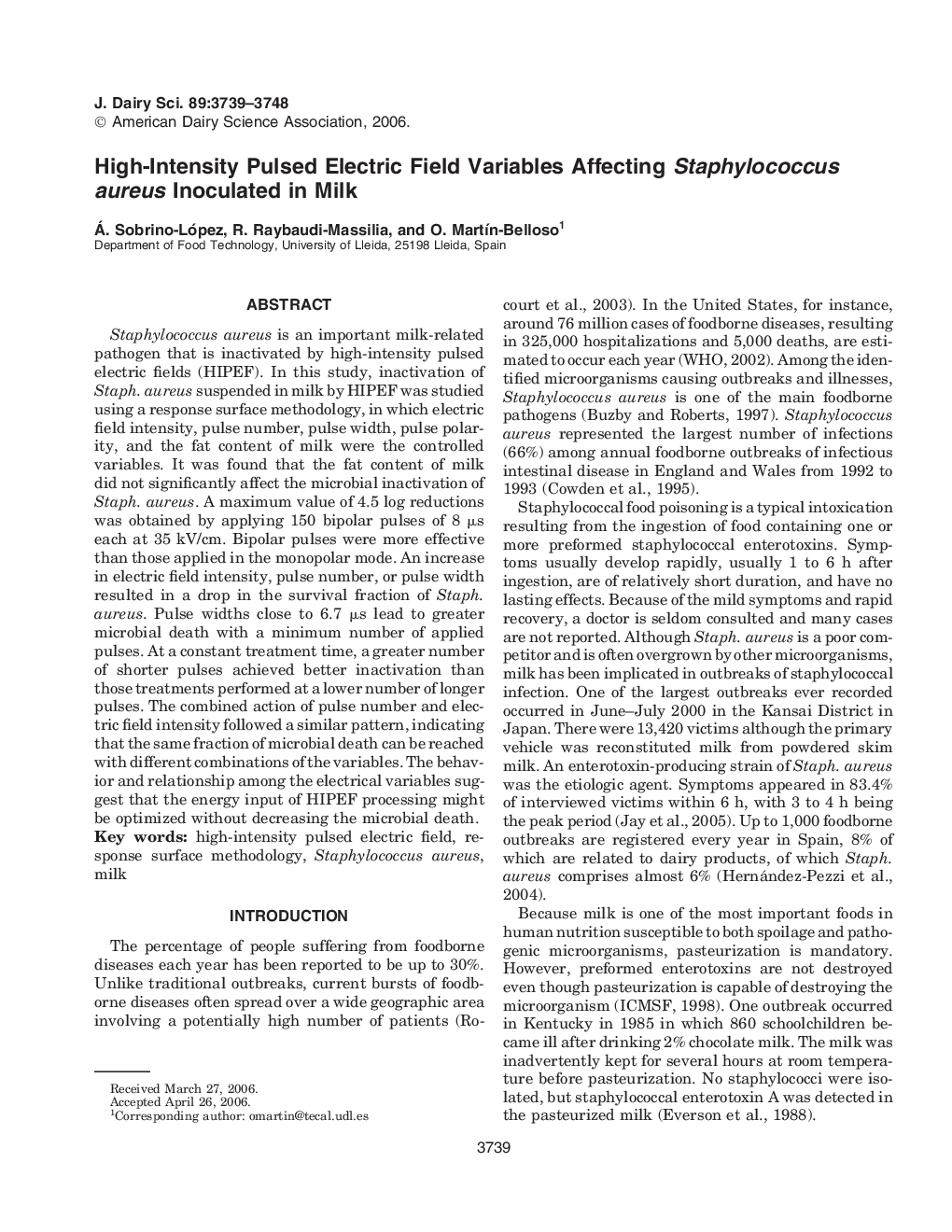| کد مقاله | کد نشریه | سال انتشار | مقاله انگلیسی | نسخه تمام متن |
|---|---|---|---|---|
| 2440942 | 1108129 | 2006 | 10 صفحه PDF | دانلود رایگان |
عنوان انگلیسی مقاله ISI
High-Intensity Pulsed Electric Field Variables Affecting Staphylococcus aureus Inoculated in Milk
دانلود مقاله + سفارش ترجمه
دانلود مقاله ISI انگلیسی
رایگان برای ایرانیان
کلمات کلیدی
موضوعات مرتبط
علوم زیستی و بیوفناوری
علوم کشاورزی و بیولوژیک
علوم دامی و جانورشناسی
پیش نمایش صفحه اول مقاله

چکیده انگلیسی
Staphylococcus aureus is an important milk-related pathogen that is inactivated by high-intensity pulsed electric fields (HIPEF). In this study, inactivation of Staph. aureus suspended in milk by HIPEF was studied using a response surface methodology, in which electric field intensity, pulse number, pulse width, pulse polarity, and the fat content of milk were the controlled variables. It was found that the fat content of milk did not significantly affect the microbial inactivation of Staph. aureus. A maximum value of 4.5 log reductions was obtained by applying 150 bipolar pulses of 8 μs each at 35 kV/cm. Bipolar pulses were more effective than those applied in the monopolar mode. An increase in electric field intensity, pulse number, or pulse width resulted in a drop in the survival fraction of Staph. aureus. Pulse widths close to 6.7 μs lead to greater microbial death with a minimum number of applied pulses. At a constant treatment time, a greater number of shorter pulses achieved better inactivation than those treatments performed at a lower number of longer pulses. The combined action of pulse number and electric field intensity followed a similar pattern, indicating that the same fraction of microbial death can be reached with different combinations of the variables. The behavior and relationship among the electrical variables suggest that the energy input of HIPEF processing might be optimized without decreasing the microbial death.
ناشر
Database: Elsevier - ScienceDirect (ساینس دایرکت)
Journal: Journal of Dairy Science - Volume 89, Issue 10, October 2006, Pages 3739-3748
Journal: Journal of Dairy Science - Volume 89, Issue 10, October 2006, Pages 3739-3748
نویسندگان
Á. Sobrino-López, R. Raybaudi-Massilia, O. MartÃn-Belloso,